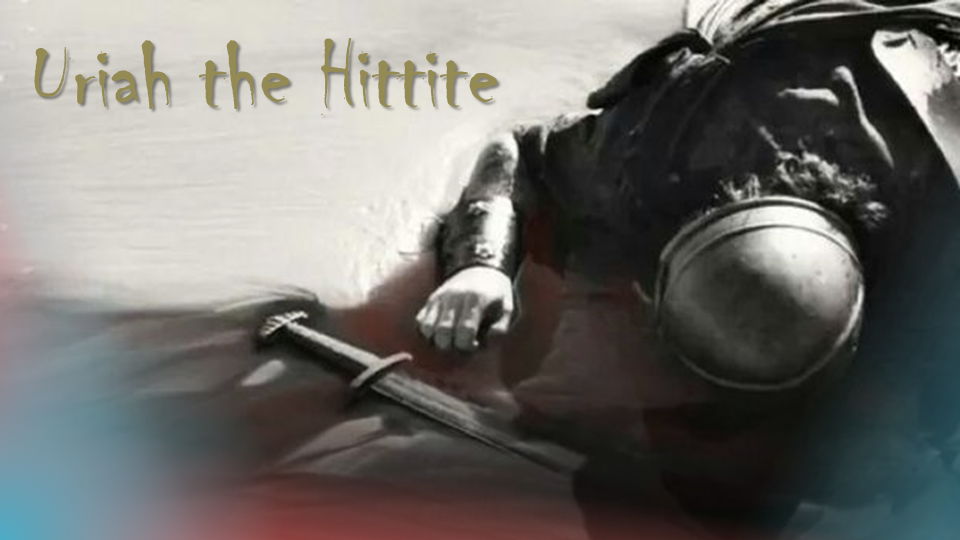
Then it happened one evening that David arose from his bed and walked on the roof of the king’s house. And from the roof he saw a woman bathing, and the woman was very beautiful to behold. So David sent and inquired about the woman. And someone said, “Is this not Bathsheba, the daughter of Eliam, the wife of Uriah the Hittite?” (2 Samuel 11:2-3)
Uriah The Hittite
The sin of David and Bathsheba is a familiar story from the Old Testament. David engaged in adultery with another man’s wife when he took Bathsheba and lay with her. He had seven wives before his adultery with Bathsheba and would have more wives and concubines. Nathan, the prophet, comes to David after it is discovered Bathsheba is pregnant with his child and tells him the Lord has put aside the penalty of death prescribed under the Law of Moses.
David’s sin led him to more transgressions when he brought the husband of Bathsheba home from the war and got him drunk to cover his adultery with Bathsheba. Unable to use her husband to cover his sin, David sends a message to Joab to have the husband killed in battle. As the battle rages near Rabbah, Joab places Bathsheba’s husband in the fiercest fighting and withdraws, leaving him to die at the hands of the enemy. Joab sends notice to David that the command was carried out. The husband of Bathsheba is dead.
The husband of Bathsheba was Uriah. Bathsheba was the daughter of Eliam (Ammiel), one of David’s officers. She was also the granddaughter of Ahithophel, a close advisor of David, who would align himself with the rebellion of Absalom. Uriah was one of the elite soldiers for the army of David, numbered among the “Thirty” (there were thirty-seven in all). These soldiers demonstrated great bravery and allegiance to the king of Israel. Uriah was an unusual part of the Israelite army because he was a Hittite.
When Abraham came to Canaan, the Hittites had long been resident there. They were a warlike group of local tribes descended from Canaan (son of Ham, grandson of Noah). Abraham bought his burial plot in the field of Ephron the Hittite. When Esau was forty years old, he married two Hittite women, to the disappointment of Isaac and Rebekah. God told Moses He would drive the Hivites, Canaanites, and the Hittites out of the land of Canaan like hornets. The Angel of the Lord would drive out the Canaanites, Amorites, Hittites, Perizzites, Hivites, and Jebusites. God wanted the Hittites to be utterly destroyed.
Israel conquered the land of Canaan, but they never destroyed the people of the land (like the Hittites). God did not want Israel to make a covenant with them, nor with their gods. The Hittites were not to dwell in the land because of the influence they would have upon God’s people. God wanted the race of the Hittites to be removed entirely from the land so Israel would not serve their gods and follow their ungodly ways. Uriah the Hittite is a testimony of the failure of Israel.
Ironically, in the story of David and Bathsheba, Uriah is the man of character. David called him back to cover his sin, but Uriah would not sleep in his house while his men fought at Rabbah. Even getting Uriah drunk would not get him to go home. Uriah carried his death sentence to Joab, never knowing what was to happen. During the final battle, Uriah must have wondered why his commander withdrew the forces from the wall, leaving him and others to die. Uriah would die bravely in battle, fighting for the king who had treacherously condemned him to death because of his adultery with the man’s wife.
Uriah was a Hittite, but he was a man of character. David was a child of Abraham, and he lost his dignity and respect in the affair with Bathsheba. Nathan’s parable shows the depths of David’s sin. The adultery was a sinful act that turned into the murder of a mighty man. Uriah also stands testimony to those who refuse to obey the command of God. If Israel had carried out the word of the Lord, Bathsheba would not have been married to a Hittite. Ultimately, the influence of the people of the land (Canaanites, Amorites, Hittites, Perizzites, Hivites, and Jebusites) would destroy Israel when the people of God became like the nations around them. One of God’s heroes was a Hittite.
